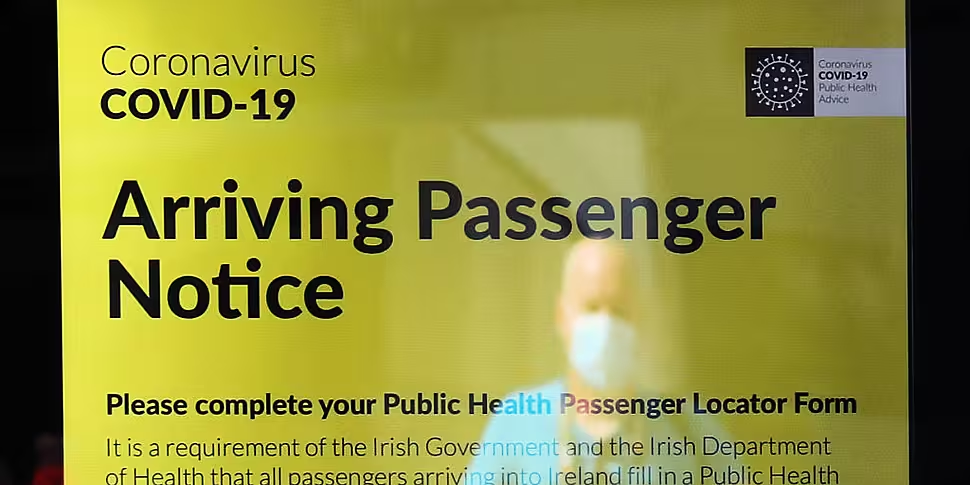Infectious diseases expert Prof Sam McConkey has said the health system's extra COVID-19 test capacity should be used to test people who are self-isolating after arriving in Ireland from overseas.
He suggested that such testing could ultimately lead to people being allowed to stop self-isolating quicker than the current 14 day period.
The HSE is testing around 5,000 swabs a day on average, but has the capacity to do 15,000.
Prof McConkey, Associate Professor and Head of the Department of International Health and Tropical Medicine at the RCSI, spoke to On The Record this morning about how the capacity for thousands of extra tests could be used.
He observed: "At present there are about 200 or 300 people coming in each day through the airport.
"Perhaps them having tests at day 3, 5, 7 and 9, for example… if we learned after a few weeks of doing that the test at day 7, for example, is consistently negative… then perhaps they could come out of the voluntary self-isolation quicker.
“If it was only three days or five days [self-isolation], that would allow much more business travel, even tourist travel. 14 days is very prohibitive."
However, he stressed there is data currently isn't available to indicate whether quick testing at airports - a service available in a number of countries - ultimately prevents the virus from being reintroduced.
'Targeted testing'
Prof McConkey said the key is to use our testing capacity in 'targeted' ways, such as in nursing homes or meat factories where there have been outbreaks.
He suggested we could also test the close contacts of confirmed cases who are already in self-isolation.
He also noted that some surgeons are testing asymptomatic patients a few days before planned surgeries to ensure they don't have the virus.
Prof McConkey was among the signatories of a letter calling for Ireland to focus on 'crushing the curve' or eliminating the virus entirely, similar to what has happened in New Zealand.
He stressed that the signatories are not saying everything should be stricter, but instead ensure that there is rapid testing and contact tracing as restrictions are eased.
He explained: “This is a recipe in my view for getting back to normal quicker, not getting back to normal slower.
“New Zealand are back with rugby, back with hairdressers, back doing everything normally except for people coming in and out of the country. They’ve got a rapid system for testing and tracing… and they’re encouraging people to wear masks."
Prof McConkey also explained that while he was initially 'terrified' about different approaches being taken in the Republic and Northern Ireland, the situation has now changed.
He said the 'cautious and unified' approach in the North is improving the chances of the virus not being reintroduced in the Republic.
He noted: “If anything they’re being more cautious than us, and we can benefit from their caution and their slow opening up.
"They seem to be working together on what I think is very, very sensible public policy that I don’t think will jeopardise what’s happening down here."









